News + Media
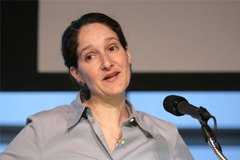 |
News ReleaseMay 10, 2005Freelance journalist Catherine Elton is first MIT Center for International Studies Elizabeth Neuffer FellowCIS announced today that Catherine Elton, a freelance journalist from the United States who has been based in Guatemala, will become the Center's first resident Elizabeth Neuffer Fellow. The announcement was made at the first Elizabeth Neuffer Forum, which was held on May 10 at the John F. Kennedy Presidential Library in Boston. |
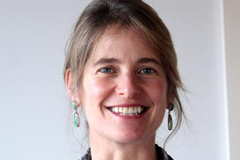 |
News ReleaseApril 20, 2005PHRJ Fellow Miriam Zoll, co-founder of "Take Our Daughters to Work Day," on protection of orphans and women's economic rightsTwelve years ago, the Ms. Foundation for Women launched Take Our Daughters To Work Day to draw public attention to pay and promotion gaps between men and women in the U.S. workplace. This year one of the program's founders is working through MIT's Program on Human Rights and Justice to develop new strategies for lifting orphan households out of poverty. |
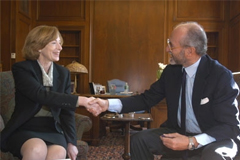 |
News ReleaseApril 14, 2005MIT-Italy brings "Roberto Rocca Project" to MITOn April 14, 2005, MIT President Dr. Susan Hockfield and Dr. Gianfelice Rocca, Chairman of Italy's Techint Group, will sign an agreement formalizing the start of an important new collaboration between MIT and the Milan Politecnico, Italy 's top engineering school. |
 |
News ReleaseApril 4, 2005"Visions for Peace in Jerusalem" conference at MIT April 8-9, 2005Jerusalem 2050 project, which will propose concrete plans to redesign the city by mid-century, is commencing with a major initiative to build the vision of a "city of peace" in this most symbolically important place. Jerusalem 2050 will hold an international design competition in 2007 to achieve these goals. |
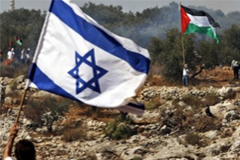 |
AuditApril 1, 2005Why US national security requires mideast peaceStephen Van Evera, MITTwo myths have important, distorting effects on the Bush administration's policy toward the Israeli-Palestinian conflict. First is the optimistic belief that the Israeli-Palestinian conflict is only a minor obstacle to American foreign policy—a modest hindrance that will not prevent the United States from achieving its main foreign policy goals. Second is the pessimistic belief that a final settlement between Israel and the Palestinians is infeasible, so a forceful U.S. push for peace will only waste effort on a fool’s errand. |
 |
AuditApril 1, 2005Raising the salience of Mexico and CanadaChappell Lawson, MITCanada and Mexico rarely figure high on the list of American priorities. Policymakers focus on conflicts in the Middle East; specialists in international relations discuss China’s growing influence; and newspapers cover the international crisis du jour. It is easy to forget about two countries that appear to pose no direct or immediate threat to U.S. interests. |
 |
AuditApril 1, 2005US military power: strong enough to deter all challenges?Barry R. Posen, MITHow strong is the U.S. militarily? Recent history would suggest very strong indeed—the U.S. armed forces are undefeated in two stand-up fights with Saddam Hussein, and one each with Slobodan Milosevic and the Taliban. The Grand Strategy of the Bush administration seeks to improve this already impressive position. |
 |
AuditApril 1, 2005The United States as an Asian power: realism or conceit?M. Taylor Fravel and Richard J. Samuels, MITThe long history of U.S. foreign policy is punctuated by axiomatic truths that have bordered on conceit—e.g., the virtues of isolation, America’s manifest destiny, and our benign, democratizing presence in world affairs. Strategists have lurched from truth to truth across the centuries, often without sufficient reflection and learning. Today the United States is operating with an axiomatic idea about its place in and of Asia. |
 |
AuditApril 1, 2005Introducing a seriesPolitics and public policy, like every walk of life, are fraught with “conventional wisdom”—the folk axioms, bromides, platitudes, and generally superficial explanations that, once entrenched, go unchallenged. Academics, journalists, activists, business leaders and just about everyone else in the chattering classes—right, left, and center—are guilty parties. All of us use conventional wisdom as a shortcut—as a handy way to “know” something about which we have not invested the time and trouble to study closely and understand fully |
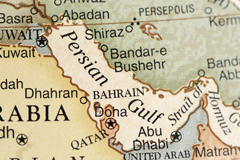 |
News ReleaseApril 1, 2005Persian Gulf Initiative to commence with April 6-7 conferenceMIT's Center for International Studies is launching a multi-year series of workshops, public forums, and publications to explore urgent issues of the Persian/Arabian Gulf region. The first series, this spring, will take up the "crisis of governance" in Saudi Arabia, Iraq, and Iran. |

